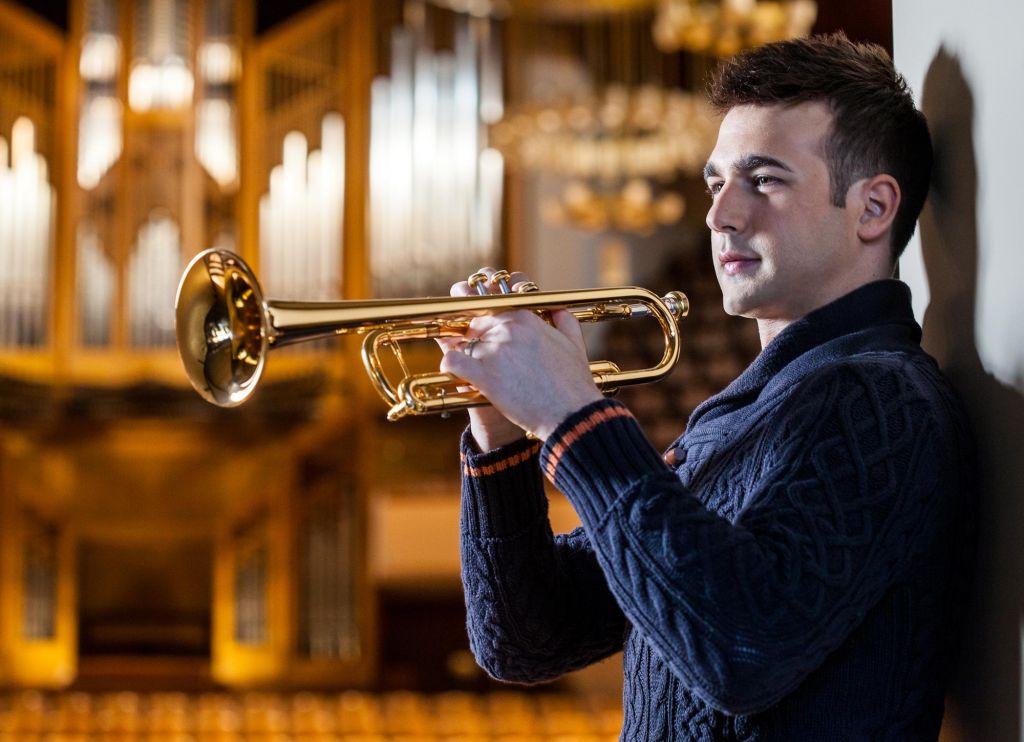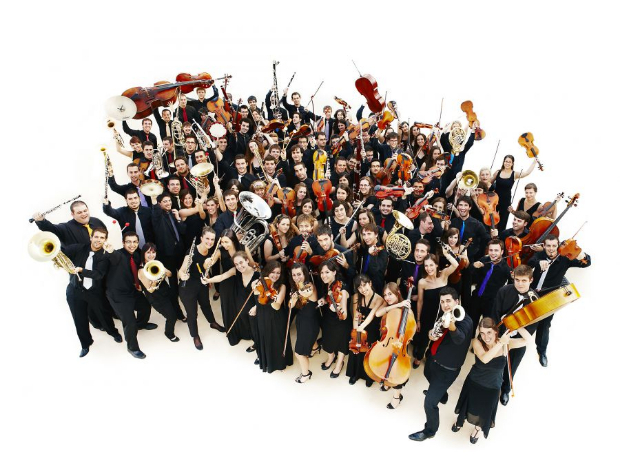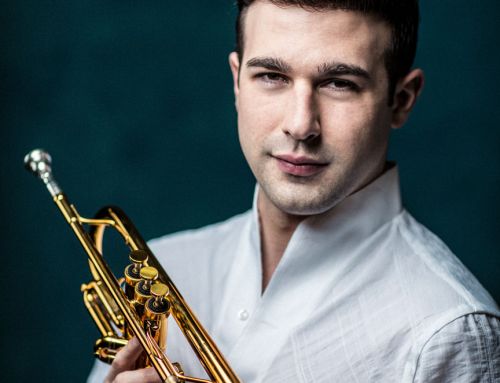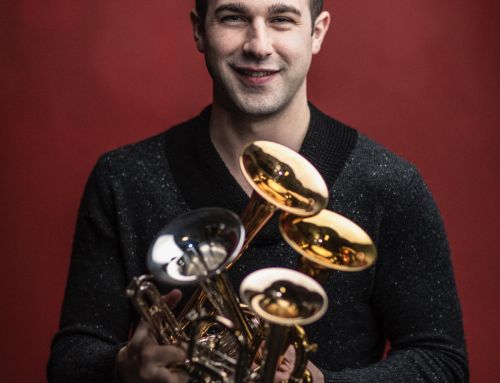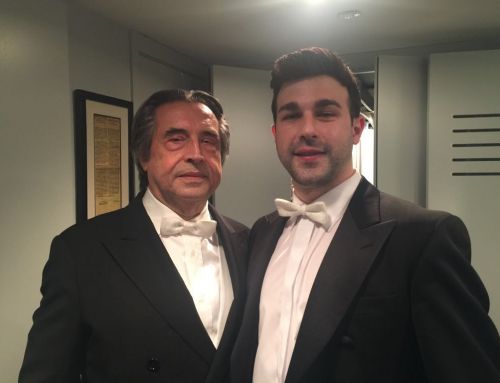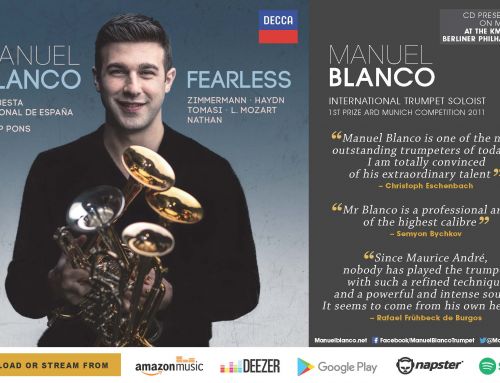11/01/2016
JONDE – Arutiunian · Shostakovitch · Manuel Blanco · Georges · Pehlivanian
Monday, January 11, 2016. Auditorium and Congress Centre Baluarte de Pamplona. Manuel Blanco, trumpet. Spanish National Youth Orchestra. George Pehlivanian, director. Alexander Arutiunian: Concerto for trumpet and orchestra, (1950). Dimitri Shostakovitch: Symphony number 7 in C major, Op. 60, (Leningrad), (1941). Concert belonging to the show season of the Baluarte Foundation October 2015-January 2016.
Young orchestras are booming. The fame achieved by the Joven Orquesta Simón Bolívar de Venezuela and its conductor Gustavo Dudamel has undoubtedly highlighted the importance of these ensembles, and has been an important incentive for the already existing European ensembles. The technical preparation that students receive at the Conservatories is becoming more and more complete, and as their motivation continues to be as great as ever, the level has increased considerably, for the benefit of all music lovers. But motivation and technique are not everything. You also need a musician on the podium who knows how to temper the spirits of the members of the orchestra and channel them along the right path. George Pehlivanian is, in this respect, a musician with clear ideas and therefore perfectly capable of doing so.
The programme offered by the JONDE opened with the Alexander Arutiunian Concerto for Trumpet and Orchestra (1920-2012). The composition is divided into three sections linked to each other, which follow the usual structure of the classical concert. The trumpet part is certainly complex, because in many moments it requires agility and virtuosity, and in others great lyrical and expressive capacity. The orchestration is also very colorful, clearly rimskiana, with a particularly prominent role of the woodwind section. On this occasion, Manuel Blanco, an extraordinary soloist in all aspects, was featured; if his performance in the technical field during the concert was outstanding, we were even more impressed by the Oblivion of Astor Piazzolla, where he managed to keep those phrases so long at a very slow tempo and ornate with great success and sensitivity. The National Youth Orchestra of Spain accompanied the Arutiunian Concert with absolute dedication, and Pehlivanian knew how to highlight the most lyrical side of the work, which led to the shining of the soloists of wood. But the best was yet to come.
Dimitri Shostakovitch (1906-1975) composed his Seventh Symphony in 1941, during the time Nazi troops besieged the city of Leningrad, where he resided. The work is divided into four movements, the first of which stands out, where it has been interpreted that the Soviet composer wanted to represent the horror of the German invasion with a ravelian crescendo of strong impact. The two central times show a disturbing and grim character, and lead to a tense Finale concluded with a false triumphant coda. In this work, the orchestra performed at its highest level, but not only as a whole but also in sections. All the soloist instruments, especially those of the woods, had very successful interventions. Pehlivanian took the play with patience without neglecting the drama. The crescendo of the first movement was built with extraordinary care and the tension remained in the next two, something difficult to achieve after the imposing start. A brilliant ending concluded a version that left us with a bitter taste, as should happen in this work, something that the public was able to appreciate with loud applause.
The program cited the name of the orchestra’s instrumentalists and included a short text by Jose Luis Turina, JONDE’s artistic director, in which he thanked the Baluarte’s direction for the preparation of the meetings held; there were no comments on the works, something that many would have appreciated especially in the case of the Concert.
Overall, it was a new demonstration that, with a good conductor at the helm, a young orchestra can reach the highest heights. The technical training of these students and, above all, their extraordinary motivation do the rest.
SOURCE: eloidocritico.com


